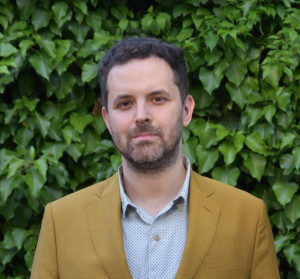Intermarriage and mortality: Evidence from Sweden
Présenté par : Ognjen Obućina (Ined) ; Discutant : Herbert L. Smith (University of Pennsylvania)
Echoing the belief that intermarried migrants are particularly well integrated into host societies, migration researchers have also been interested in the link between partner choice and immigrants’ outcomes. These studies were initially mainly concerned with economic outcomes, such employment or earnings. This research field has gradually broadened, and more recently we can observe an increased interest in the association between partner choice and health. Our aim is to contribute to this emerging research area by exploring the link between exogamy and mortality among natives and immigrants in Sweden. Our analysis rests on the assumption that three main mechanisms shape the association between intermarriage on the one hand, and health and mortality on the other: 1) marital distress, 2) exchange of health behaviors, and 3) selection into intermarriage.
In our study, intermarriage is defined as a marriage between a native and a foreign-born person, whereas an endogamous marriage is defined as a marriage between two partners born in the same country. We apply a longitudinal approach, using Swedish population registers and hazard regression/event-history techniques to examine the role of intermarriage on all-cause mortality. The analyses cover the period between 1990 and 2016, and also include a variety of background information such as gender, country of birth and time-varying histories of household income, or educational attainment. Our results show that intermarried native men face have higher mortality risk than their endogamously married counterparts. The association between intermarriage and mortality among native women is less straightforward, and depends on the origin of the immigrant spouse. In contrast, the association between intermarriage and mortality in immigrants is less favorable among women.
Ognjen Obućina

Ognjen Obućina is a researcher at INED. He joined the Institute in October 2017, and is affiliated to two research units: International Migrations and Minorities, and Economic Demography. Ognjen has a PhD in Sociology from the University Pompeu Fabra in Barcelona. During his doctoral studies he was principally interested in different aspects of well-being among immigrants in Europe. He defended the thesis titled “Dynamics of well-being among immigrants“ in 2012 and joined the Demography Unit of Stockholm University’s Department of Sociology (SUDA) as a postdoctoral researcher, and later also as a research fellow. His research interests during five years spent in Sweden were located at the intersection of immigrant integration and family dynamics among immigrants and their children. Over the previous years, Ognjen has also gathered a considerable experience in the study of intermarriage. Between 2013 and 2017 he was also active as a teacher at Stockholm University, at both undergraduate and postgraduate level. He has published a number of single-authored and co-authored articles in the journals such as European Population Journal, Demographic Research, Social Indicators Research, Acta Sociologica.
